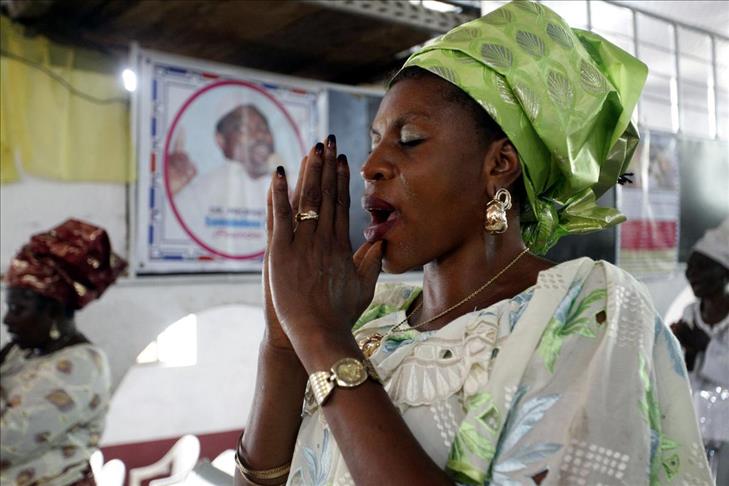
By Rafiu Ajakaye
LAGOS
Huge mountains stretching several kilometers and thick forests are some of the hallmarks of Nigeria's countryside.
But often, these are more than just mere landmarks: for in many parts of Nigeria, mountains are worshipped as deities.
"It is the belief of our forefathers that the mountain in our village, Alabe, is a source of power that can be consulted for assistance in times of need," Ogundimu Odeyemi, son of the chief priest of the mountain, told The Anadolu Agency.
He said the mountain was central to the existence of the founding fathers of Alabe – a small community in Kwara State's Ifelodun local government area – who migrated to the place following years of war.
"They held the mountain in high esteem because it was their belief that it offered them sanctuary from enemy attacks," Odeyemi said.
"So anytime they had problems, they were always consulting the mountain or appeasing it with cows or any other animal as may be required," he added.
According to Odeyemi, the tradition has been carried on to this day.
Rituals are performed to appease the gods, which they believe the mountains represent.
"We appease every year with male cows, or as the pantheon indicates; the gods are believed to have accepted the sacrifice if the request is granted, especially if it rains as worshippers return from the mountain," he told AA.
Odeyemi said that, once a year, devotees set out for the mountain at around 4pm. The ritual peaks around 7pm, when the devotees return.
Worshippers return with leaves in their hands, chanting "oke gbabooo, oke gbabooo; gbogbo agbaagbaa oke gbabo o" – which means "the mountain has accepted the sacrifice."
Abdullahi Abdussalam, a native of Alabe who was raised a Muslim, recalled participating in the ritual once.
"I attended the ritual once, but regretted doing so, because my grandparents – who were among the earliest Muslims in the village – punished me severely," he told AA.
"While they wouldn't stop others from participating, they frowned on my taking part in what they described as 'paganism'," Abdussalam recalled.
He recalled how he was given a cut from a cow slaughtered at a small shrine located on the mountain.
"They cooked and shared the meat right there. It was fun, really, because many children like me participated," Abdussalam said.
Nigeria's various ethnic groups are identified with different deities, although the rising influence of the Abrahamic faiths – particularly Islam and Christianity – has served to diminish these local beliefs to a large extent.
At least half of Nigeria's population are said to be Muslims, while some 40 percent practice Christianity. Most others believe in local deities.
Alade Bilewu, another Alabe resident, said that the worshipping of local deities was intended to "ward off evil from the town or seek intervention on issues affecting the community."
Bilewu said the local farming community usually offers sacrifices to the mountain if there is a scarcity of rain, which can often result in excessive heat and disease.
Anu Michael, an indigene from the neighboring Ora community, has taken part in similar rituals.
"We have an annual Oke Ora festival, too, when atonements are offered to the mountain," he told AA.
"Our forefathers believed that the mountain possessed supernatural powers," said Michael. "Traditional worshippers appease the gods through objects."
Anadolu Agency website contains only a portion of the news stories offered to subscribers in the AA News Broadcasting System (HAS), and in summarized form. Please contact us for subscription options.


